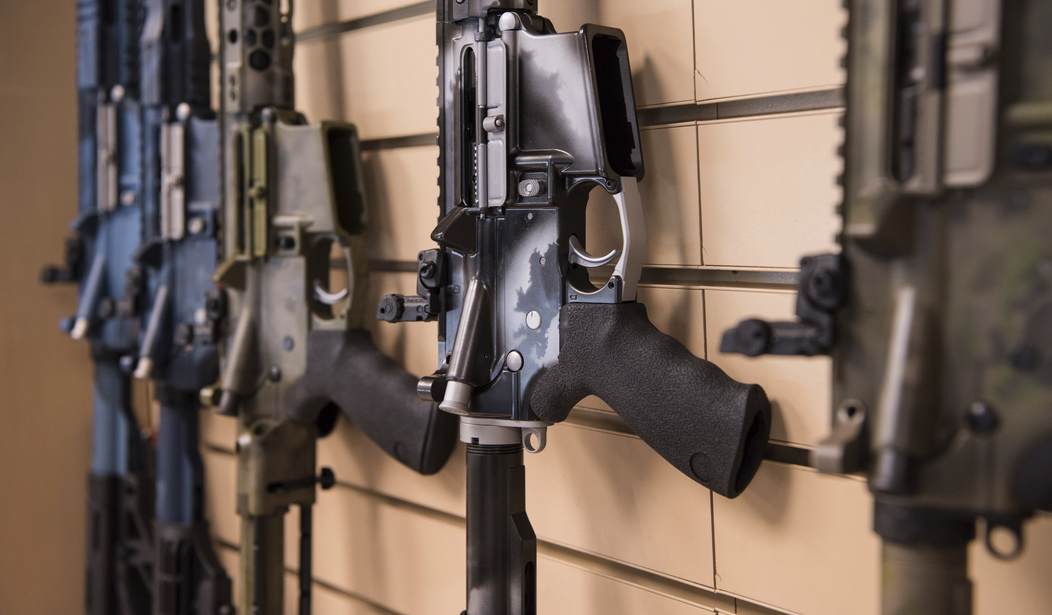I've spent a lot of time over the years blasting the media for its biased approach to the discussion of the efficacy of gun control laws. Generally, that efficacy is presented as a given; an indisputable fact that is so obvious the "search for truth" doesn't require the search for actual truth.
But since the November elections, we've noticed a shift in a lot of places, where the pandering to certain entities has come to an abrupt end. Does that include the media, at least with regard to guns?
Well, based on this piece from Newsweek, maybe.
New gun safety measures took effect across several U.S. states on January 1, following a year in which the country experienced 503 mass shootings, according to the Gun Violence Archive.
California, Illinois, Colorado, and Washington, among other states, introduced stricter regulations aimed at curbing gun violence.
In California, concealed firearms are now banned in 26 areas, including parks, churches, and zoos. Illinois prohibited certain semiautomatic weapons, like AK-47s and AR-15s.
Washington introduced a 10-day waiting period for firearm purchases and mandatory safety training, and Colorado banned untraceable "ghost guns."
Will these stricter laws effectively reduce mass shootings and gun violence? Newsweek sought expert opinions on their potential impact.
Now, we've seen this approach before. Pretending you're just asking questions, then pick the most biased sources you can, all to arrive at a preconceived answer.
Only, something weird happened here, and it starts with the first expert, a criminologist from the University of Alabama.
Dr. Jihoon Kim: New State Gun Laws May Be Ineffective. The Root Cause of Violence Must Be Addressed
Gun laws in the United States are often viewed through two opposing lenses: Gun rights and gun control.
The new state gun laws in 2025 continue to reflect this division, with each side pursuing its own policy agenda. States advocating for gun control have enacted stricter regulations on firearm possession and carrying, aiming to mitigate gun violence to some extent.
Supporters of stricter gun control argue that increased firearm regulations can reduce gun violence by limiting accessibility and restricting their use in various contexts.
However, a critical question remains: Does restricting firearms truly enhance societal safety?
For instance, banning assault weapons might reduce casualties in mass shootings directly involving firearms.
Yet, a more pressing concern arises: If an individual is intent on carrying out a mass shooting but cannot access an assault weapon, they may resort to alternative methods such as using pressure cooker bombs—like those in the Boston Marathon bombing—or even employing a vehicle as a weapon.
In such cases, while the number of gun-related casualties may decrease, the overall impact of the attack may not significantly differ.
Ultimately, reducing gun violence may be attainable through stricter firearm regulations, but focusing exclusively on regulating guns could shift the form of violence without addressing its underlying causes.
To effectively minimize harm, broader solutions addressing the root issues of violence must be considered beyond limiting access to firearms.
Now, Dr. Kim is just one voice, and many of the others that were spoken to were willing to argue that gun control might be effective under certain circumstances, but only one of the "experts" offered outright support for gun control, and he was a professor of public health, not someone with expertise on guns, crime, or anything of the sort.
Another University of Alabama criminologist, Dr. Susan Dewey, notes that violent crimes almost always involve firearms that were illegally obtained.
Of course, I'm not saying the journalist went out of her way to be fair. The fact that many of these experts were from the University of Alabama--there was at least two more--suggests a certain amount of laziness on the reporter's part. That said, she also didn't go searching for a ton of contrary points of view.
The one thing that was nearly universal in the discussion? The need to address the underlying problems that lead to violent crime. Many called for better mental health options for people, though I'm not sure what the data said about mental illness and violent crime being all that entwined.
Still, what we have is a news report that makes it pretty clear that gun control shouldn't at least be the first line of approach when dealing with criminality.
It's especially interesting because this was about particular state policies, none of which do anything but blame the guns for these states' issues with violent crime.
Is the media starting to shift on the issue of guns?
One report does not a trend make. This could be an outlier or it could be the harbinger of something new from the media as a whole. It could be something in between.
Either way, it's nice to see for a change.







